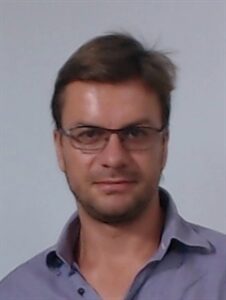Matthieu Wyart is a French physicist. He is professor of physics at EPFL (École Polytechnique Fédérale de Lausanne) and the head of the Physics of Complex Systems Laboratory. Wyart’s research encompassed field such as the architecture of allosteric materials, the theory of deep learning, the elasticity and mechanical stability in disordered solids, the granular and suspension flows, the glass and rigidity transitions, the marginal stability at random close packing and other glasses, and the yielding transition. More recently his work has focused on machine learning, in particular data structure and generative models. M. Wyart is the recipient of the Simons Investigator Award, the Sloan Fellowship, the G. Carrier Fellowship, the Dresden Physics prize and is a fellow of the American Physical Society.


